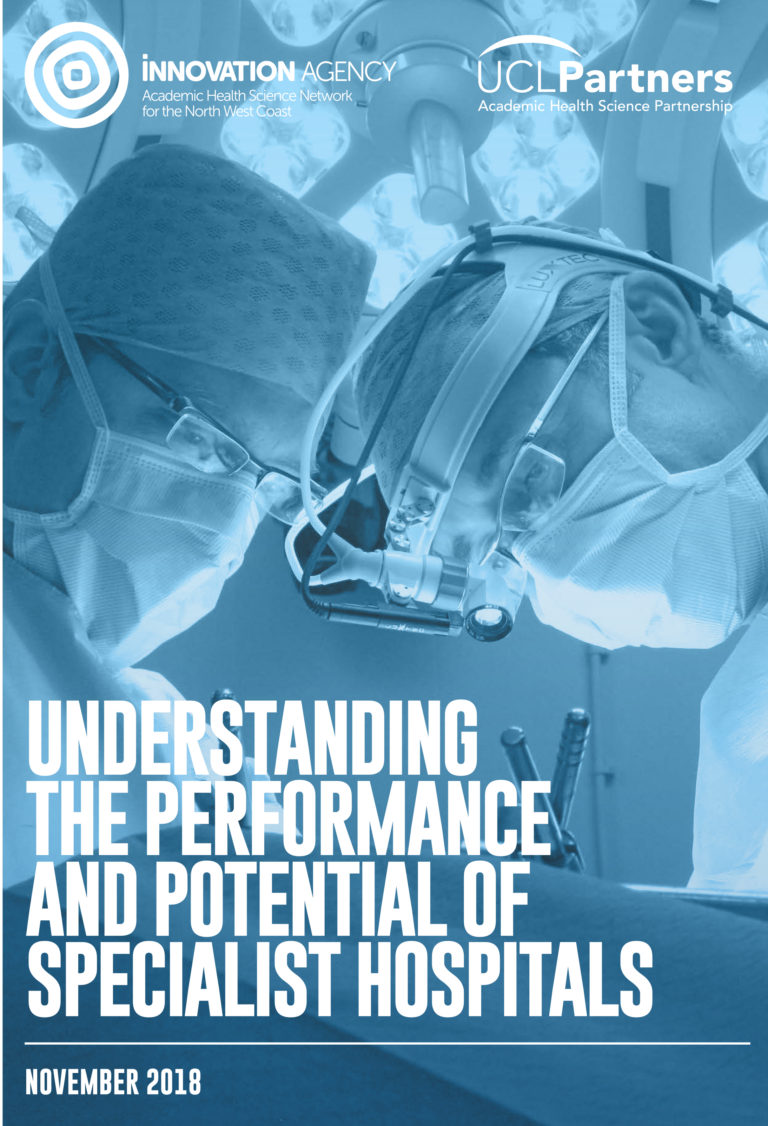Review highlights potential bigger role for specialist trusts
A new report by UCLPartners and the Innovation Agency outlines how high-performing specialist trusts have the potential to do more to benefit the wider NHS.
A review of around one-third of England’s 21 specialist trusts looked at why they consistently score higher than their counterparts in ratings for performance and satisfaction.
The review recommends seven ways in which local systems can benefit more widely from the role of specialist trusts.
The review focussed mainly on the North West and London where there are clusters of specialist trusts, to explore the reasons for higher performance indicators – and to identify whether there is potential for them to do more. The report authors were Dr Liz Mear and Dr Charlie Davie.

Dr Liz Mear, Chief Executive of the Innovation Agency, the Academic Health Science Network for the North West Coast, said: “It is well known that specialist trusts enjoy consistently high ratings from CQC inspections, staff and patient surveys.
“Within the AHSN Network we are also aware that specialist trusts tend to be more successful with innovation – supporting staff to do things differently and working with external organisations such as ourselves, businesses and charities. We were keen to find out why, hence the review.”
Dr Charlie Davie, Managing Director of UCLPartners, said: “Specialist trusts are frequently seen as the ‘honest broker’ in their local systems and many have taken on cross-cutting leadership roles which we feel could be formalised and expanded.
“There is more that could be done by commissioners and local systems to harness the potential of specialist trusts, for instance in leading transformation programmes and also in learning from their culture and approach to innovation.”
The recommendations are:
- All trusts should consider establishing a senior leader for innovation, linking to supportive agencies such as Academic Health Science Networks (AHSNs) and National Institute for Health Research (NIHR).
- Guidance on a best practice approach to service innovation should be developed by the AHSN Network in collaboration with specialised commissioners, with expert advice available to all trusts to help them fast-track service innovations.
- Specialised commissioners should consider supporting the international benchmarking of specialist trusts, using some of the service outcome standards as part of the core specification with all providers. This will support truly world-class service delivery standards across England.
- To help promote innovative treatments, a pump-priming fund should be established by national commissioners such as NHS England, to be accessed through bids from specialist trusts and other providers, to take forward wider service advances, on the condition that they lead the roll out of the service innovation.
- As the narrower range of conditions managed by most specialist trusts has allowed a more collegiate culture, trusts are asked to explore whether it is possible to replicate this within clinical units.
- NHS England should consider how more specialist hospitals could provide a supportive population health management role in system transformation
- As many specialist hospitals are often unaware of the national policies, levers and funding streams that might encourage faster adoption and spread of innovations, they should establish a formalised partnership with their local AHSN to take forward service innovations and accelerate adoption and spread throughout the system.
The report was commissioned by the Federation of Specialist Hospitals.